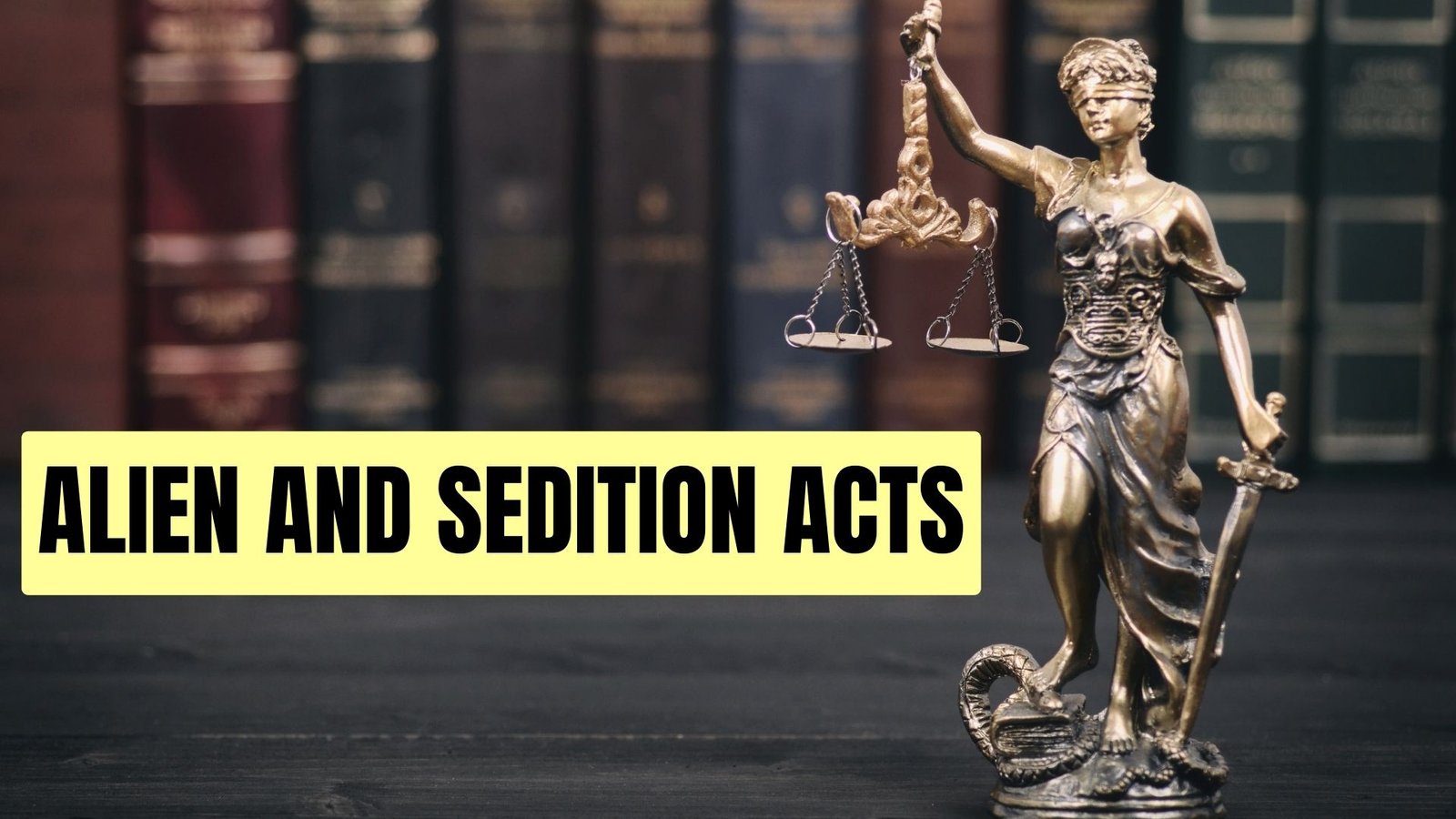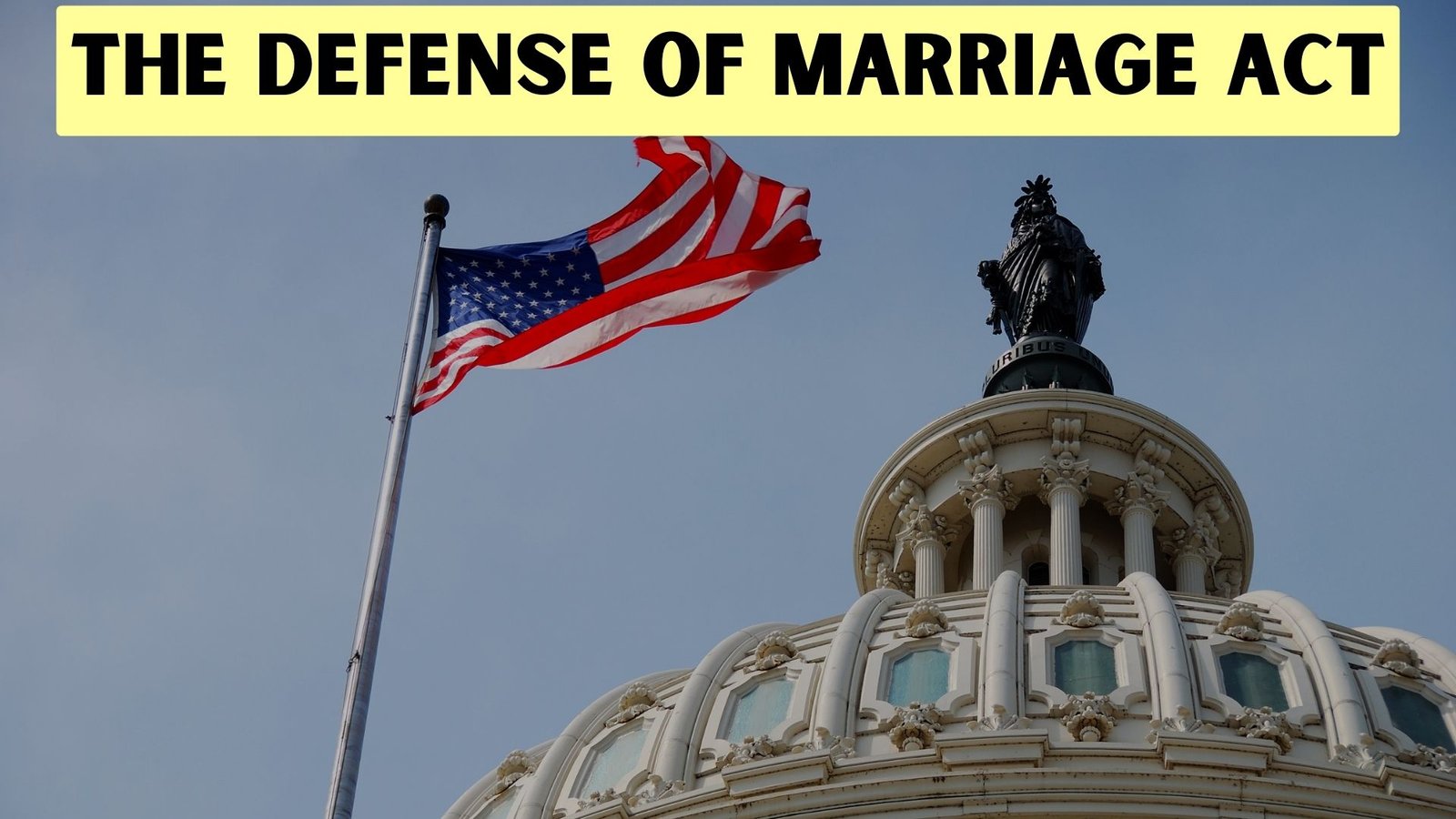On this page you will read detailed information about Alien and Sedition Acts of 1798.
As a student of history, you likely appreciate how acts passed by the early Congresses shaped the trajectory of the young United States. Few legislative actions were as controversial in the late 18th century as the Alien and Sedition Acts. In this article, you will closely examine the political context surrounding these Acts. We will analyze the motivations behind their passage and the fierce backlash against them. By studying the Alien and Sedition Acts and their aftermath, you will gain key insights into the fierce debates regarding states’ rights versus federal power that marked America’s formative years. Through a thoughtful exploration of this history, you will come away with a nuanced understanding of how these Acts impacted constitutional interpretations in the early republic.
Overview of the Alien and Sedition Acts
Passed in 1798, the Alien and Sedition Acts were four controversial laws enacted by the Federalist Party in the United States. They included the Naturalization Act, the Alien Friends Act, the Alien Enemies Act, and the Sedition Act. Ostensibly, these Acts were passed in anticipation of a possible war with France. However, the Federalists also intended to suppress political opposition and dissent.
The Naturalization Act
This Act increased the residency requirement for American citizenship from 5 to 14 years. The Federalists aimed to limit the number of potential voters who might oppose them.
The Alien Friends Act
The Alien Friends Act authorized the president to deport any resident alien considered “dangerous to the peace and safety of the United States.” The president had broad discretion to judge who fell into this category.
The Alien Enemies Act
The Alien Enemies Act allowed for the arrest, detention, and deportation of male citizens of a hostile nation during times of war.
The Sedition Act
The Sedition Act made it a crime to publish “false, scandalous, and malicious writing” against the government or certain officials. The Federalists used this broadly defined law to target members of the rival Republican Party who criticized the Adams administration.
The controversy surrounding these Acts contributed to the decline of the Federalist Party in the early 1800s. Thomas Jefferson and James Madison opposed the Acts, arguing they violated civil liberties and the Constitution. The Acts were repealed or allowed to expire between 1800 and 1801 as the Federalists lost power.
In retrospect, the Alien and Sedition Acts are seen as an infringement on civil liberties and an attempt to suppress political dissent. They demonstrated the importance of protecting essential rights like freedom of speech. Overall, the Acts highlighted the fragility of those rights in the early years of the Republic.
In the previous post, we had shared information about Analyzing the Pendleton Civil Service Act of 1883, so read that post also.
The Alien Act: Targeting Immigrants
The Alien Act, one of four controversial laws passed in 1798, allowed the president to deport any alien deemed “dangerous to the peace and safety of the United States.” This act gave the president unilateral power to deport immigrants without due process.
Targeting Immigrants for their Political Beliefs
A key motivation behind the Alien Act was to silence and punish immigrants who supported the French Revolution and opposed the Federalist administration. The Federalists viewed French immigrants, in particular, as radical sympathizers who threatened national security. The Act gave the president broad authority to deport any immigrant he believed supported the French Revolution.
Deportation Without Judicial Review
Under the Alien Act, the president could order the deportation of any immigrant without judicial review. Immigrants had no right to a trial or hearing to challenge the deportation order. The president’s decision was final. This concentration of power in the executive branch alarmed critics who believed it violated constitutional principles of separated power and due process.
The Sedition Act: A Tool for Political Persecution
For the Federalists, the Alien Act was closely linked with the Sedition Act – aimed at silencing domestic political dissent. Together, these laws gave the Federalists sweeping power to persecute opponents, whether citizens or immigrants. The Federalists used the Acts to harass and prosecute newspaper editors and public figures who criticized the Adams administration.
The Alien and Sedition Acts highlighted the political divisions of the era and the fragility of civil liberties in the new republic. For critics like Thomas Jefferson and James Madison, the Acts were unconstitutional violations of free speech and due process – establishing dangerous precedents of federal overreach and abuse of power. Though short-lived, the controversy shaped debates over immigration policy, free speech, and the separation of powers that endure to this day.
The Sedition Act: Silencing Political Opposition
The Sedition Act made it illegal to publish “false, scandalous, and malicious writing” against the government or certain government officials.
Curbing Free Speech
The Sedition Act severely curtailed freedom of speech and the press. It gave the federal government power to prosecute anyone who criticized government officials or made false statements that were critical of the federal government. The Act essentially made it a crime to criticize the political positions and actions of the incumbent Federalist Party.
A Blow to the Bill of Rights
The Sedition Act directly contradicted the protections of free speech and press guaranteed in the First Amendment of the Bill of Rights. However, Federalists argued that the Bill of Rights only protected against censorship before publication, not after. They claimed the Act only punished malicious and subversive speech that would undermine the government.
Stifling Political Opposition
In practice, the Sedition Act was used almost exclusively against supporters of the opposing Democratic-Republican Party. Several Democratic-Republican newspapers were shut down, and their editors were imprisoned, for printing criticisms of President Adams and the Federalists. The Act helped the Federalists silence dissent and weaken their political opposition in the lead-up to the election of 1800.
Expiration and Legacy
The Sedition Act was only in effect until March 3, 1801, just after the election of 1800. However, its legacy as one of the most egregious violations of civil liberties in U.S. history lives on. The controversial law continues to serve as a reminder of the importance of defending essential rights like free speech, even in times of political turmoil. Although short-lived, the Sedition Act dealt a damaging blow to civil liberties that has had a lasting impact on debates over the limits of free speech and government power.
The Naturalization Act: Making Citizenship Harder
The Naturalization Act of 1798 made significant changes to the process of becoming a naturalized U.S. citizen. It increased the residency requirement to 14 years, more than doubling the previous 5-year requirement. Applicants now had to prove they were of “good character” and take an oath renouncing any titles of nobility. The act also expanded the list of offenses that could lead to citizens losing their citizenship.
Stricter Residency Requirements
The residency requirement was increased to 14 years of continuous residence in the U.S., up from just 5 years. This meant immigrants now had to live in America for over a decade before becoming eligible to apply for citizenship. The longer time period aimed to ensure only immigrants firmly attached to republican principles and American institutions could become citizens. However, the extended wait likely deterred many worthy candidates.
Vague “Good Character” Clause
Applicants were now required to prove they were of “good character”, but this was vaguely defined. Naturalization agents had broad discretion to determine an applicant’s character based on their own biases and prejudices. The subjectivity of this new requirement likely prevented or delayed citizenship for immigrants from certain ethnic or social groups.
Renouncing Titles of Nobility
As part of the naturalization oath, new citizens now had to formally renounce all titles of nobility. This reinforced the republican principle that the U.S. would have no hereditary aristocracy. However, it may have deterred wealthy or high-status immigrants who were unwilling to relinquish such titles.
The Naturalization Act of 1798 imposed substantial obstacles to becoming an American citizen. While some measures reaffirmed important republican values, others gave too much discretion to prejudiced officials or were disproportionately burdensome. The act’s restrictions reveal the anti-immigrant sentiments held by some politicians at the time and their concerns over foreign influence on American democracy.
Backlash and Controversy Surrounding the Acts
The Alien and Sedition Acts provoked controversy at the time, setting off a national debate on civil liberties. Opposition from Jefferson and Madison Thomas Jefferson and James Madison were ardent opponents of the Acts, which they saw as unconstitutional violations of civil liberties. In the Virginia and Kentucky Resolutions, Jefferson and Madison argued that states had the right to declare federal laws unconstitutional. They believed the Acts gave too much power to the federal government and threatened free speech.
The Press Fights Back
The Sedition Act curtailed freedom of the press, making it a crime to publish “false, scandalous, and malicious writing” against the government. In response, publishers like Benjamin Franklin Bache used satire and allegory to criticize the Adams administration. Bache’s paper, the General Advertiser, published a fictitious account of King George plotting with John Adams to reestablish monarchy in America. Bache was later arrested under the Sedition Act, angering Republicans.
The Acts Backfire
The Acts ultimately backfired on the Federalists. By 1800, many saw the Federalists as tyrannical and power-hungry. The Sedition Act in particular was viewed as an attempt to stifle political opposition. When Thomas Jefferson and the Republicans came to power, they allowed the Acts to expire and pardoned those convicted under them.
The Alien and Sedition Acts provoked controversy that shaped debates over civil liberties in America. They highlighted tensions between federal and states’ rights, and between liberty and security. For their overreach, the Acts are now seen as a low point in the Adams presidency and a stain on the Federalist Party’s record. By infringing on civil liberties, the Acts ironically undermined the very principles of liberty and republicanism they aimed to protect.
In the end, the backlash against the Alien and Sedition Acts showed the strength of opposition to tyranny and the demand for freedom that shaped the early American republic. Though short-lived, their legacy lives on in the ongoing debate over balancing civil liberties and national security.
Key Figures Involved in Drafting and Passing the Acts
The Alien and Sedition Acts were controversial pieces of legislation passed in 1798 that strengthened the power of the federal government and limited civil liberties, particularly the right to free speech. Several influential politicians were instrumental in drafting and enacting these laws.
President John Adams, leader of the Federalist Party, signed the Acts into law. Adams and the Federalists supported a strong central government and favored Britain in foreign affairs. They aimed to silence Republican critics of Adams’ administration and limit immigration of French refugees during the Quasi-War with France.
Secretary of State Timothy Pickering drafted the Alien Act, allowing the president to deport any non-citizen deemed “dangerous to the peace and safety of the United States.” Pickering, a staunch Federalist, sought to curb criticism of President Adams and restrict immigration.
Congressmen Robert Goodloe Harper of South Carolina introduced the Sedition Act, making it illegal to publish “false, scandalous, and malicious” criticisms of the government. The Sedition Act aimed to suppress dissent and strengthen the Federalist grip on power.
The Alien and Sedition Acts highlighted early debates over civil liberties in America and the scope of federal power. They were also a political miscalculation that contributed to the Federalists’ loss of Congress and the presidency in the election of 1800. The Acts were widely opposed by Republicans, who valued civil liberties and states’ rights, and ultimately expired or were repealed in the early 1800s.
Though short-lived, the Alien and Sedition Acts set an alarming precedent and revealed the fragility of civil liberties in the new republic. They serve as a warning for democracies in times of war, internal strife or fear. Protecting constitutional rights requires constant vigilance, even in the face of perceived threats. By upholding civil liberties, democracies prove their resilience.
Notable Sedition Trials and Convictions
The Sedition Act of 1798 made it a criminal offense to publish “false, scandalous, and malicious writing” against the government or its officials. Several controversial sedition trials resulted in convictions that set concerning precedents regarding freedom of speech.
One such trial was that of Matthew Lyon, a Vermont congressman. Lyon was imprisoned for four months and fined $1,000 for an essay criticizing President Adams’ “unbounded thirst for ridiculous pomp, foolish adulation, and selfish avarice.” Lyon’s conviction highlighted how the Sedition Act could be used to stifle political dissent.
The prosecution of Benjamin Franklin Bache, editor of the Philadelphia Aurora, was also controversial. Bache frequently criticized the Adams administration in his newspaper. He was arrested for seditious libel but died of yellow fever before trial. Bache’s death intensified opposition to the Sedition Act and its infringement upon press freedoms.
Perhaps the most infamous sedition trial was that of James Callender, a journalist and pamphleteer. Callender accused President Adams of “having only one good quality – a strong affection for money.” For publishing this and other criticisms of Adams and his administration, Callender was fined $200 and imprisoned for nine months. Callender’s harsh sentence further demonstrated how the Sedition Act could be used to curb dissent and free speech.
The controversial sedition trials and convictions highlighted the dangers of the Alien and Sedition Acts regarding civil liberties like freedom of speech and press. They showed how these laws could be used to stifle political dissent and opposition. The notable cases of Lyon, Bache, and Callender set troubling precedents and intensified opposition to the Alien and Sedition Acts from civil libertarians and Jeffersonian Republicans.
The Acts’ Legacy and Impact on Civil Liberties
The Alien and Sedition Acts of 1798 had a lasting impact on civil liberties in the United States. These laws granted extraordinary powers to deport foreigners and curb free speech during a time of political turmoil. While the crisis eventually subsided, the Acts established a troubling precedent that still resonates today.
The Sedition Act criminalized speech that was critical of the federal government. It violated the First Amendment’s guarantee of freedom of speech by making it a crime to publish “false, scandalous, and malicious writing” against Congress or the president. The Act was used to prosecute newspaper editors and public figures who voiced dissent. Such oppression of political dissent undermined a key democratic principle.
The Alien Act gave the president the power to deport any non-citizen who was considered “dangerous to the peace and safety of the United States.” Though it was not as widely enforced, its passage reflected a wave of xenophobia and hostility toward immigrants. The targeting of immigrants solely due to their nationality or beliefs poses a threat to civil liberties that remains an issue today.
While the Acts were allowed to expire in 1801, they highlighted the fragility of constitutional rights during times of crisis. The tendency to infringe on civil liberties in the name of national security continues to be a sensitive issue, as governments grapple with countering threats while upholding democratic values. By recognizing past overreaches, we can have a more balanced discussion on securing safety and protecting rights.
The Alien and Sedition Acts remain a sobering lesson in the need for vigilance in defending civil liberties. Though short-lived, these laws caused immense damage and established precedents that still resonate over 200 years later. By revisiting this history, we are reminded of the timeless responsibility to protect the rights of free speech, due process and equal treatment that form the foundation of American democracy.
Conclusion
As you have seen, the Alien and Sedition Acts of 1798 were highly controversial and had significant impacts on the young American republic. While the Federalists claimed national security concerns justified these restrictive laws, the Democratic-Republicans saw them as attempts to silence political opposition. The acts raised critical questions about the balance of power between federal and state governments, as well as the scope of civil liberties. Though short-lived, the Alien and Sedition Acts left a lasting legacy regarding freedom of speech and press in the United States. This tumultuous episode demonstrated the importance of vigilantly guarding constitutional rights, even in times of conflict. As the nation continues to grapple with these issues today, the debates sparked over 200 years ago remain insightful. Though the Alien and Sedition Acts are long gone, the difficult questions they raised are still very much alive.
Disclaimer
The information and services on this website are not intended to and shall not be used as legal advice. You should consult a Legal Professional for any legal or solicited advice. While we have good faith and our own independent research to every information listed on the website and do our best to ensure that the data provided is accurate. However, we do not guarantee the information provided is accurate and make no representation or warranty of any kind, express or implied, regarding the accuracy, adequacy, validity, reliability, availability, or completeness of any information on the Site. UNDER NO CIRCUMSTANCES SHALL WE HAVE ANY LIABILITY TO YOU FOR ANY LOSS OR DAMAGE OF ANY KIND INCURRED AS A RESULT OR RELIANCE ON ANY INFORMATION PROVIDED ON THE SITE. YOUR USE OF THE SITE AND YOUR RELIANCE ON ANY INFORMATION ON THE SITE IS SOLELY AT YOUR OWN RISK. Comments on this website are the sole responsibility of their writers so the accuracy, completeness, veracity, honesty, factuality and politeness of comments are not guaranteed.
So friends, today we talked about Alien and Sedition Acts of 1798, hope you liked our post.
If you liked the information about Alien and Sedition Acts of 1798, then definitely share this article with your friends.








